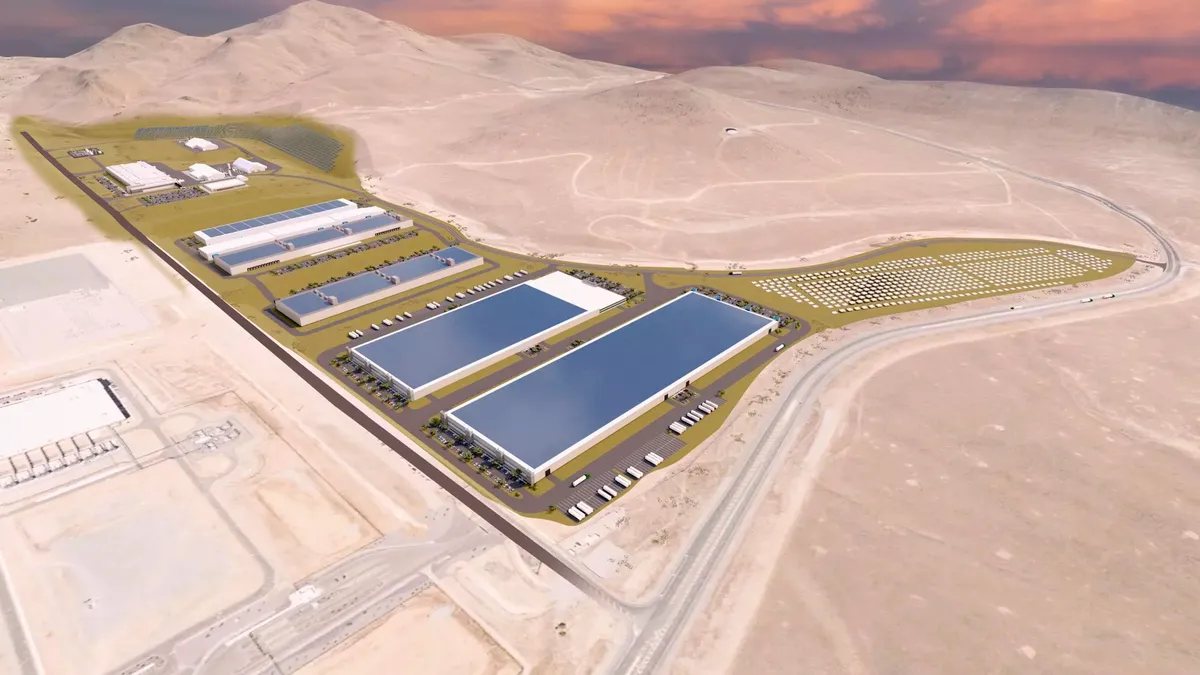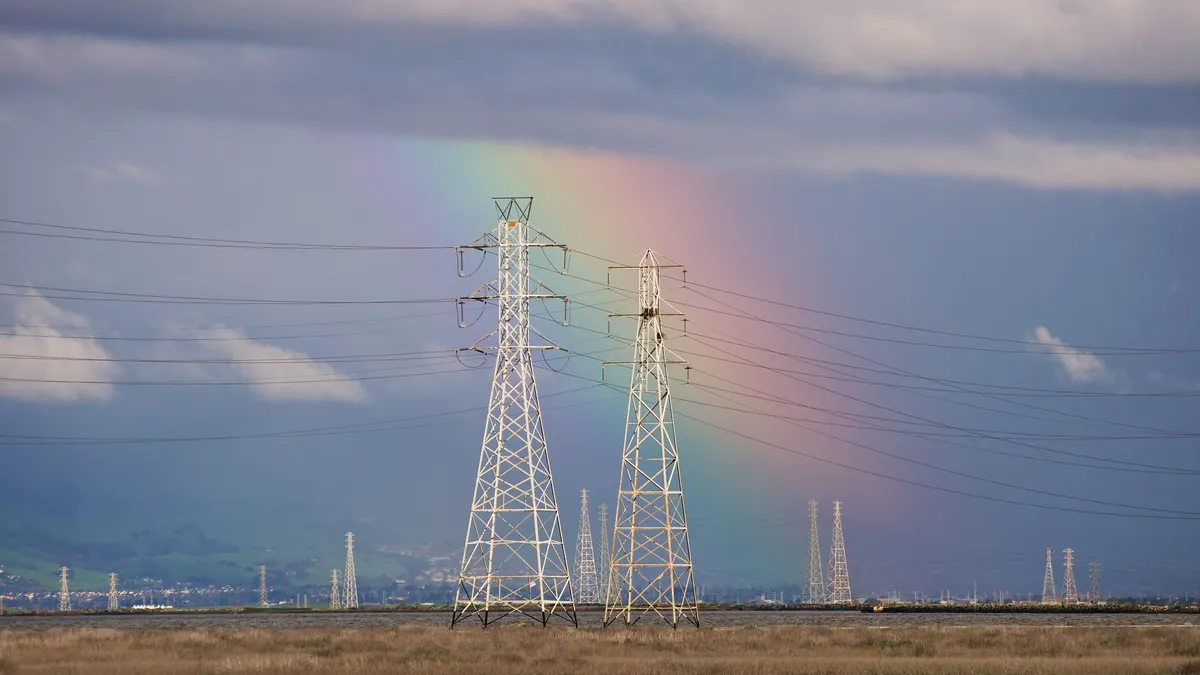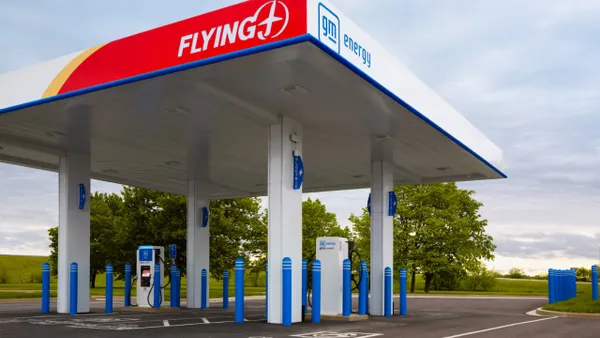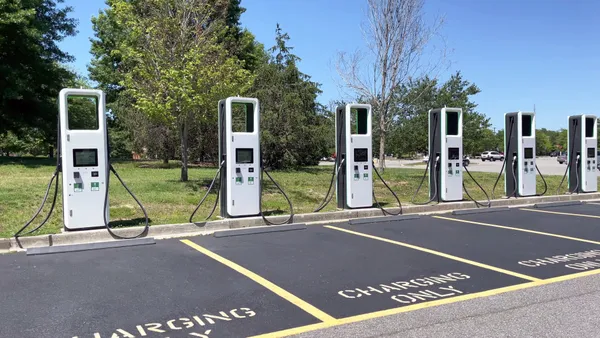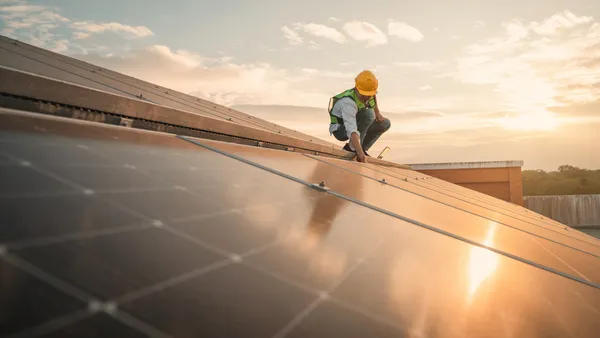Dive Brief:
- The Department of Energy will supply battery material manufacturer Redwood Materials a $2 billion conditional loan to expand production capacity, the company announced on Thursday.
- The money will be used to expand production power at Redwood's McCarran, Nevada facility, where it produces anode and cathode materials for EV batteries.
- When at full capacity, the manufacturing campus should produce 100 GWh annually of battery-grade copper and cathode materials, enough to power batteries for 1 million EVs a year.
Dive Insight:
The Energy Department's announcement comes days after President Joe Biden pushed for the strengthening of U.S. supply chains during his State of the Union address, beginning with producing key critical materials.
Biden pressed for the growth of semiconductor and EV supply chains closer to home and less reliant on foreign components. During remarks at Redwood's announcement in Nevada on Thursday, Energy Secretary Jennifer Granholm highlighted that the loan brings the U.S. a step closer to making that a reality.
"Redwood Materials is going to play this outsized role in bringing the battery supply chain home," Granholm said during her remarks. "Because you're focused on the pieces that we don't have in the United States."
The secretary hailed the passage of the CHIPS and Science Act and the Inflation Reduction Act for fostering a welcoming environment for EV and battery manufacturers to set up shop in the U.S.
"The laws that were passed in the past couple of years have made the United States irresistible for the full battery supply chain," Granholm said. "There is now an industrial strategy that says we're going to make this stuff in America."
Sourcing from Redwood’s McCarran site will help automakers qualify for tax incentives offered to EV consumers through the Inflation Reduction Act. The law stipulates that qualifying vehicles have final assembly in the U.S. and that components have not been “extracted, processed, or recycled by a foreign entity of concern,” including China and Russia.
Redwood began producing copper foil at its McCarran plant earlier this month, with plans to bring cathode material production online by 2025. It hopes to raise anode and cathode material production to 500 GwH a year by 2030, enough to power 5 million vehicles.
The plant is expected to create 3,400 construction jobs and 1,600 permanent positions.
"By making these materials domestically, ramping this industry right here at home, we will drive down the cost of batteries and the EVs made from them," CEO JB Straubel said during his remarks at the announcement event. "We will reduce the CO2 emissions embedded inside those components, create thousands of U.S. jobs and help retain millions of dollars in the US."
Nevada has become a hub for critical material production and investment.
Last month, Tesla announced a $3.6 billion investment to expand its manufacturing footprint in the state, building a cell factory capable of producing enough batteries to power 1.5 million light duty vehicles a year.
Others in the state have also secured loans from the Energy Department to grow their EV mineral production plans. The department is offering $700 million to lithium processor Ioneer to build a production site for the material.



